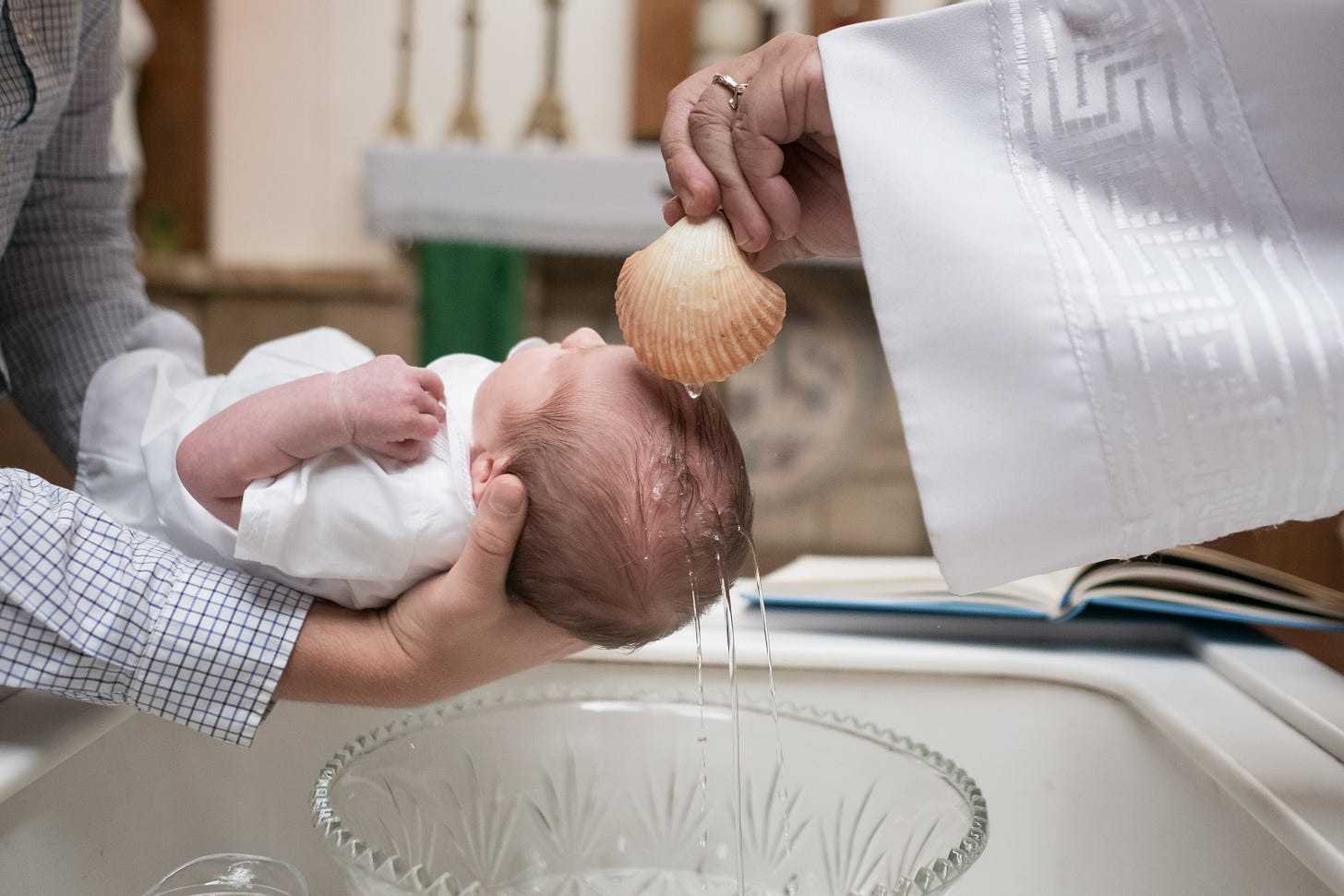I’ve been a bit obsessed with listening for the past decade (hence the newsletter). It has changed the way I interact with others, impacted how I approach ministry, and given me a new perspective when I read scripture. One passage began to stand out to me as a poignant allegory for listening: Mark 7:31-37.
In the passage, Jesus heals a man experiencing deafness and a speech impediment. Jesus takes the man aside and heals him through a unique process which includes touching his ears, spitting, touching his tongue, looking up to heaven, sighing, and speaking the Aramaic word ephphatha, which means be opened. With Jesus’ command, the man’s ears are opened, and his speech is restored. As an allegory, I thought the passage emphasized the importance of attentiveness in the life of faith. A few years ago, I discovered that I wasn’t the only one.
The Ephphatha Rite
From early in its history, The Ephphatha Rite has been a part of baptism in the Roman Catholic Church. I’ve had trouble learning much about it until just last week when I discovered a dissertation by Rev. Luis Guilherme da Silva Mendes, a vicar of the Catholic Archdiocese of Denver. His dissertation explained the long history of The Ephphatha Rite and its importance in the initiation of Christian converts. I highly recommend you read it in full here.
Here are a few highlights:
In the first centuries of the church, conversion was a significant initiation that included a long and serious preparation that culminated during Holy Week and ended with the baptism of converts on Easter Sunday. In this period, The Ephphatha Rite would be performed as a preparation for baptism on Holy Saturday.
St. Ambrose, the Bishop of Milan (373-397) is the first to note the liturgical practice as preparation for the baptismal rite. He writes:
“What have we done on the Sabbath? ‘The opening,’ of course. These mysteries of ‘the opening’ were celebrated when the priest touched your ears and nostrils… Therefore, the priest has touched your ears, that your ears may be opened to the sermon and exhortation of the priest.”
There are several other shifts that occur over the centuries, but the current state of the rite is found in the Rite of Christian Initiation of Adults which was adopted in 1972. The updated rite reads,
“The celebrant touches the right and the left ear and the closed lips of each of the elect with his thumb and says the following formulary: Ephphetha: that is, be opened, that you may profess the faith you hear, to the praise and glory of God.”
A Life of Openness
Mark 7 and The Ephphatha Rite urge followers of Jesus to embrace a life of openness to God and neighbor and remind us that the only way to achieve this level of attentiveness is through supernatural intervention. Christ desires to meet us, to address the areas in our life that are keeping us separated from God and our neighbors, to open our attentiveness to God’s self and to others, restoring us to right relationship with God and our community. Restoration is available to us—we can be opened and restored to community—all we must do is ask.




